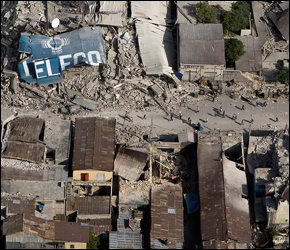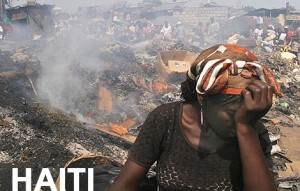 Excellent May 31, 2010 New Yorker article by William Finnegan called Letter from Mexico, Silver or Lead which is unfortunately only available by subscription only (click here for link to abstract also pasted below) The most telling two words of the article = “state capture.”
Excellent May 31, 2010 New Yorker article by William Finnegan called Letter from Mexico, Silver or Lead which is unfortunately only available by subscription only (click here for link to abstract also pasted below) The most telling two words of the article = “state capture.”
ABSTRACT: LETTER FROM MEXICO about La Familia Michoacana and the pervasive power of drug traffickers in the country. Writer visits the hill town of Zitácuaro in the Mexican state of Michoacán. On the morning before his arrival, the dismembered body of a young man was left in the middle of the main intersection. It was an instance of what people call corpse messaging. Usually it involves a mutilated body and a handwritten sign. “Talked too much.” “You get what you deserve.” The corpse’s message—terror—was clear enough and everybody knew who left it: La Familia Michoacana, a crime syndicate whose depredations pervade the life of the region.
Mexico’s president, Felipe Calerón declared war—his metaphor—on the country’s drug traffickers when he took office, in December, 2006. It was a popular move. Although large-scale trafficking had been around for decades, the violence associated with the drug trade had begun to spiral out of control. More than twenty-three thousand people have died since Calderón’s declaration. La Inseguridad, as Mexicans call it, has become engulfing, with drugs sliding far down the list of public concerns, below kidnapping, extortion, torture, unemployment, and simple fear of leaving the house. The big crime syndicates still earn billions from drugs, but they have also diversified profitably. In Michoacán a recent estimate found eight-five per cent of legitimate businesses involved in some way with La Familia. Among Mexico’s drug trafficking organizations, La Familia is the big new kid on the block. It first gained national attention in September, 2006, when five severed heads rolled onto the dance floor at a night club in Uruapan, Michoacán. A senior American official in Mexico City told the writer, “La Familia is looking more and more like an insurgency and less like a cartel.” Mentions one of La Familia’s leaders, Nazario Moreno González, who is also known as El Chayo, or El Más Loco (the Craziest). Writer discusses La Familia’s activities with a local politician and relates how the cartel has, in some places, filled the vacuum created by public distrust of the police and the courts.
The overwhelming growth of organized crime in Mexico in the past decade is often blamed on multiparty democracy. Until 2000, the country was basically a one-party state for seventy-one years under the Institutional Revolutionary Party (PRI). Drug trafficking flourished, but its practitioners enjoyed stable relations with officialdom. Describes how the election of Vicente Fox in 2000 changed the status quo between drug traffickers and government. Writer gives a survey of other significant Mexican drug cartels, including the Sinaloa cartel, and the Zetas, who had previously occupied Michoacán. Tells about the rise of La Familia in 2006 and its expansion into nearby states. Discusses U.S.-Mexico relations and the drug trade. Writer visits a drug-rehabilitation center in Zamora. Describes acts of kidnapping and extortion perpetrated by La Familia.
Links Connecting Police Corruption + Narcosphere + U.S. + North Mexico/Chihuahua/Juarez & Beyond: Continue reading “The Mexico + American Narcosphere (Calling Carlos “Slim” Helu)”





 local people are working to resolve some of the longest and bloodiest conflicts around the world.
local people are working to resolve some of the longest and bloodiest conflicts around the world.
 Excellent May 31, 2010 New Yorker article by William Finnegan called Letter from Mexico, Silver or Lead which is unfortunately only available by subscription only
Excellent May 31, 2010 New Yorker article by William Finnegan called Letter from Mexico, Silver or Lead which is unfortunately only available by subscription only 



